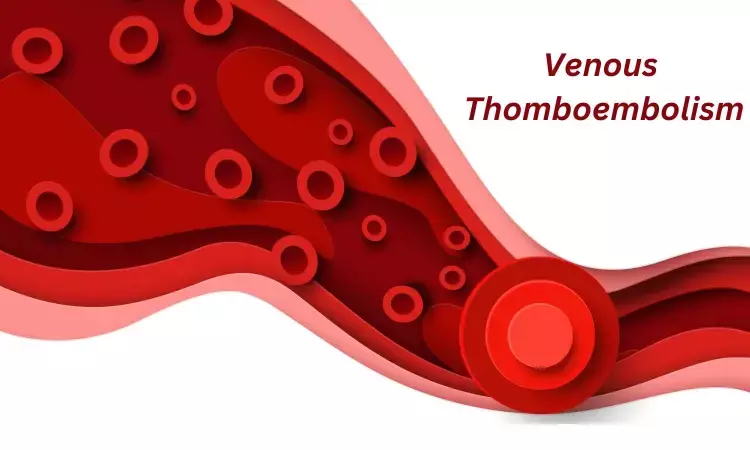- Home
- Medical news & Guidelines
- Anesthesiology
- Cardiology and CTVS
- Critical Care
- Dentistry
- Dermatology
- Diabetes and Endocrinology
- ENT
- Gastroenterology
- Medicine
- Nephrology
- Neurology
- Obstretics-Gynaecology
- Oncology
- Ophthalmology
- Orthopaedics
- Pediatrics-Neonatology
- Psychiatry
- Pulmonology
- Radiology
- Surgery
- Urology
- Laboratory Medicine
- Diet
- Nursing
- Paramedical
- Physiotherapy
- Health news
- Fact Check
- Bone Health Fact Check
- Brain Health Fact Check
- Cancer Related Fact Check
- Child Care Fact Check
- Dental and oral health fact check
- Diabetes and metabolic health fact check
- Diet and Nutrition Fact Check
- Eye and ENT Care Fact Check
- Fitness fact check
- Gut health fact check
- Heart health fact check
- Kidney health fact check
- Medical education fact check
- Men's health fact check
- Respiratory fact check
- Skin and hair care fact check
- Vaccine and Immunization fact check
- Women's health fact check
- AYUSH
- State News
- Andaman and Nicobar Islands
- Andhra Pradesh
- Arunachal Pradesh
- Assam
- Bihar
- Chandigarh
- Chattisgarh
- Dadra and Nagar Haveli
- Daman and Diu
- Delhi
- Goa
- Gujarat
- Haryana
- Himachal Pradesh
- Jammu & Kashmir
- Jharkhand
- Karnataka
- Kerala
- Ladakh
- Lakshadweep
- Madhya Pradesh
- Maharashtra
- Manipur
- Meghalaya
- Mizoram
- Nagaland
- Odisha
- Puducherry
- Punjab
- Rajasthan
- Sikkim
- Tamil Nadu
- Telangana
- Tripura
- Uttar Pradesh
- Uttrakhand
- West Bengal
- Medical Education
- Industry
Cancer surgery linked to increased venous thromboembolism risk: JAMA

A recent study highlights the intricate relationship between major cancer surgeries and the subsequent risk of venous thromboembolic events (VTEs). The critical findings of this study were published in a recent issue of the Journal of American Medical Association to underline the nuanced landscape of thromboprophylaxis therapy following cancer surgery.
The retrospective observational matched cohort study covered the entire Swedish population from 1998 to 2016 by including patients who underwent major surgeries for various cancers, including bladder, breast, colon or rectum, gynecologic organs, kidney and upper urothelial tract, lung, prostate, and gastroesophageal tract. This study meticulously matched these patients in a 1:10 ratio with cancer-free individuals with considering factors such as year of birth, sex, and county of residence.
These factors were analyzed from February 13 to December 5, 2023 and revealed a significant 1-year cumulative risk of pulmonary embolism among the cancer surgery population. Also, the risks varied among different cancer types by emphasizing the need for personalized thromboprophylaxis regimens based on the specific surgery and cancer type.
The study reported increased risks within the first 30 days after surgery, with hazard ratios 10 to 30 times higher when compared to the non-cancer cohort. While the risks gradually subsided it did persist for about 2 to 4 months postoperatively, thereby highlighting a critical window for vigilant monitoring and potential intervention.
The outcomes suggest that the increased VTE rate is likely attributed to both the underlying cancer disease and adjuvant treatments. This finding emphasizes the importance of individualized risk assessment and prophylaxis strategies customized to the unique circumstances of every patient undergoing cancer surgery.
Reference:
Björklund, J., Rautiola, J., Zelic, R., Edgren, G., Bottai, M., Nilsson, M., Vincent, P. H., Fredholm, H., Falconer, H., Sjövall, A., Nilsson, P. J., Wiklund, P., Aly, M., & Akre, O. (2024). Risk of venous thromboembolic events after surgery for cancer. JAMA Network Open, 7(2), e2354352. https://doi.org/10.1001/jamanetworkopen.2023.54352
Neuroscience Masters graduate
Jacinthlyn Sylvia, a Neuroscience Master's graduate from Chennai has worked extensively in deciphering the neurobiology of cognition and motor control in aging. She also has spread-out exposure to Neurosurgery from her Bachelor’s. She is currently involved in active Neuro-Oncology research. She is an upcoming neuroscientist with a fiery passion for writing. Her news cover at Medical Dialogues feature recent discoveries and updates from the healthcare and biomedical research fields. She can be reached at editorial@medicaldialogues.in
Dr Kamal Kant Kohli-MBBS, DTCD- a chest specialist with more than 30 years of practice and a flair for writing clinical articles, Dr Kamal Kant Kohli joined Medical Dialogues as a Chief Editor of Medical News. Besides writing articles, as an editor, he proofreads and verifies all the medical content published on Medical Dialogues including those coming from journals, studies,medical conferences,guidelines etc. Email: drkohli@medicaldialogues.in. Contact no. 011-43720751


